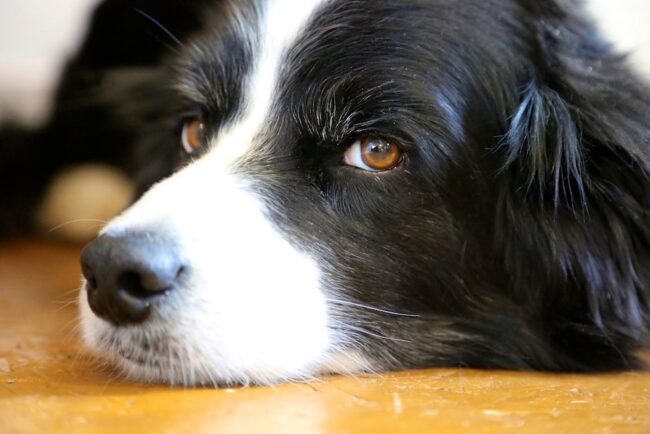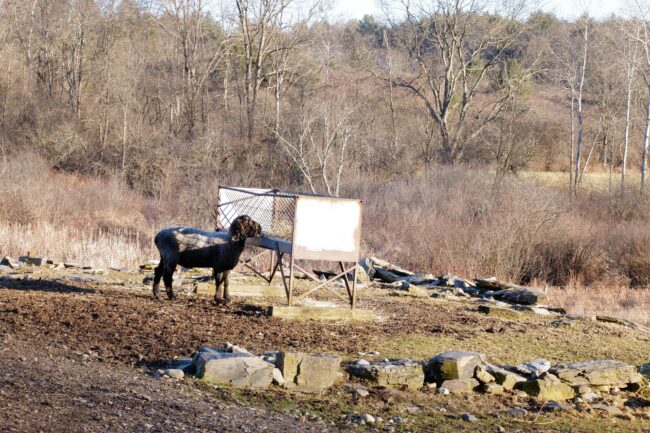Eight or nine years ago, I learned that I could lift the pain and confusion inside of me by trying to help others more in need than I was, so I took my first therapy dog, Izzy, with me to a hospice call I had been asked to go out on as a Hospice Volunteer.
At first, this was a distraction, a simple way to feel better.
It became a lot more.
I was asked to spend two hours a week with Nathan, a 19-year-old paraplegic crippled by an awful motorcycle accident.
I was asked to go to a home for severely disabled people run jointly by hospice group and the state of New York.
The home was in an old, decaying Mansion on the New York/Vermont border. When I met Nathan, Izzy ran right up to him and put his head on his shoulder, which brought a thin smile.
But I was afraid; I felt overwhelmed and unprepared.
I was asked to help Nathan get showered, fed, and dressed. I expected an aide or a nurse to help, but then I realized I was expected to do it myself.
I had volunteered for this unnerving work and would be tested by it.
As a former reporter, I had seen a lot of death, suffering, and injury, but the severity of Nathan’s life was new to me, especially at close range.
Nathan could not walk, speak, dress, or undress. I’ve always had trouble with intimacy, but this was different. I was afraid of him and almost turned around and left the home.
Izzy stopped me cold.
Nathan couldn’t speak, but I could see the joy and delight in his eyes when Izzy curled up and lay down next to him in his bed. Izzy knew just what he needed to do. I wasn’t sure about me.
I can’t say to this day if Nathan knew who I was.
His body was severely distorted, and he suffered from frequent and severe seizures.
If that happened, I was given a walkie-talkie to call a nurse or doctor. Otherwise, I was on my own.
The home was short-staffed, as almost all of them are. Volunteers had to jump in; there was no help to count on.
Somedays, the house was so short-staffed I would get an emergency call from hospice. Could I go to help Nathan get washed, dressed, and fed in the morning? I always said yes. I was living alone on the first Bedlam Farm.

(Izzy’s last photo)
I would go to his room by 6 a.m.
I woke him up as gently as possible, and Izzy was helpful. He jumped up on Nathan’s bed and kissed him lightly. Nathan loved being awakened that way; it was the only time I saw him smile. He tried to speak at times but couldn’t.
I never tire of seeking the joy a dog can bring a troubled person.
But he could talk with his eyes.
I had no experience of caring that intimately for any other human being. Writing about tragedy is different from experiencing it.
I told the home manager I wasn’t sure if I could do it.
“I wouldn’t worry about it,” she said. “Once you and Nathan get to know one another, once you meet him in the bathroom or on the toilet or at lunch, then you will know him, and he will know you, and you will learn how to speak to him, communicate with him, hold him, clean him and be with him.”
You may, she said, come to love him deeply. I am familiar with the early Christian call (Jesus, too) to love the poor and help them. The Bible is full of calls to love the poor. For a while, this was the focus of Christianity itself.
“Proverbs 16:19: It is better to be of a lowly spirit with the poor than to divide the spoiled with the proud. Proverbs 19:17 Whoever is generous to the poor lends to the Lord, and he will repay him for his deed. Proverbs 22:9: The generous will be blessed, for they share their food with the poor.”
The discomfort eased as I learned to care for Nathan.
I helped him up, walked, carried him to the toilet, and helped him sit down. I learned to walk him slowly and carefully, worried every step about the possibility of a seizure.
When I had undressed him and drawn the warm water, I lifted him into the tub. This was a struggle; he was almost as heavy as I was.
I poured water on him, careful to keep it out of his eyes – it could sting – shampooed his hair, got him out again to brush his teeth, comb his hair, and get him back into bed.
Izzy participated in every part of this process, walking alongside, watching closely, and staying close.
Nathan’s beautiful green eyes followed him every step of the way.
Then, I got him into his wheelchair and walked to the kitchen for breakfast.
At the table, I brought him food and spoonfed it to him. Some days, he was able to lift the spoon himself.
He never spoke in words, but his eyes seemed to miss nothing.
Since he never spoke to me, I often talked with him, and I can’t say if he heard what I was saying and understood it. He sure loved Izzy.
Nathan had a strong appetite, and I watched him closely to ensure he didn’t choke on any food. I had never watched anyone eat so carefully or slowly.
Every meal took at least an hour.
After a few weeks, I realized I was no longer frightened of seeing Nathan and missed him. I guess I missed caring for him.
I was living alone at the time and could quickly get to the home for breakfast. Sometimes, I came later, in the afternoon, to help with dinner. If an aide thought Nathan was low, they called for Izzy and me.
The aides thought Nathan loved seeing me and Izzy and just lit up. There seemed to be a smile whenever he was told we were coming.

In some strange way, I realized that Nathan and I belonged together; there was a reason for us to meet and work together.
I couldn’t say what it was, but I know it pulled me out of myself and my troubles and helped me see that I could love the people who are poor and needy, like the ancient Christians said.
it just took a while and a lot of faith.
What are we here for? I kept asking myself. “Just to make money and save it?”
This was hard and draining work; I understood why the aides burned out so often.
This was a turning point in my life.
At the time, I was running around like a maniac, doing one thing after another, trying to run a big farm with animals, running from my ordinary life, writing books and blogging, desperate to prove to myself, my family, and the world that I was worthwhile and had something to offer beyond writing stories about dogs and animals.
I learned that what mattered to Nathan was not what I did but that I showed up, a lesson I brought with me to the Mansion, as well as my work with the refugee children.
“How can I help you?” I asked one sick and depressed Mansion resident. “Just show up,” he said.
I never really learned how Nathan felt about me, but I sensed that he had a strong heart like mine, a human heart full of feelings and needs. We were joined in some way.
In giving himself over to me for such intimate care, Nathan and I were learning to love and need each other. Here was an intimacy beyond words or explanation.
I visited Nathan on and off for eight or nine months.
By then, I was seeing him three or four times a week. I no longer had any discomfort. Nathan taught me that I could love the genuinely needy and that doing this was a gift to me as much as to them.
I dismissed my old anxieties and concerns about helping someone so intimately. This was the beginning of my search for a mystical and spiritual life. We are born to do some good.
And I was getting good at it.
I remember reading Henri Nouwen’s account of his experience helping a person with paraplegia named Adam in Toronto similarly.
“I was ashamed to say,” he wrote, “that it took me some time to move from thinking that Adam, far from being primarily physically and mentally challenged, and therefore not my equal, was, in fact, my brother. He was a full human being, so fully human that God chose him to become the instrument of love.”
I had the same feeling about Nathan. He gave me the gift of being the brother I never had.
One day, I came to get him up, washed, and fed, and his bed was empty. This is the sad experience any hospice worker or volunteer often has.
We know what it usually means, and we are the last to know.
Nathan had suffered a violent seizure and was rushed to the hospital. He died several days later. I never had a chance to say goodbye, yet I never really had the opportunity to say hello.
We came to love each other in the mysterious and unknowable way of messed-up humans like me. Nathan got me on my spiritual search, which has done so much for me.
I’m not especially religious, Nathan, but if you are up there looking down, thanks.











